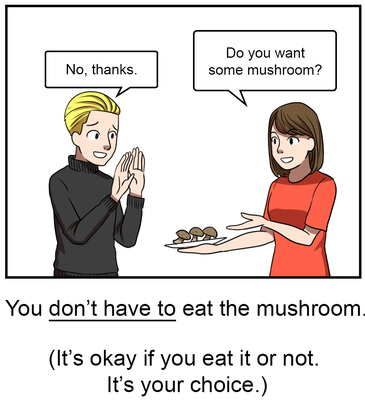Modal Verbs and Semi-Modal Verbs of Obligation and Ability
- Modal verbs of obligation express duties or requirements; "must" is a key example. "Have to," "has to," and "ought to" are semi-modal verbs of obligation.
- Modal verbs of ability describe capacity or possibility; "can" and "could" illustrate this. "Is able to" is a semi-modal verb of ability.
- Grammar rules for obligation: Subject + modal/semi-modal verb + base verb. For ability: Subject + modal/semi-modal verb + base verb.
Modal verbs are auxiliary verbs that add meaning to the main verb, indicating necessity, possibility, permission, or ability. Semi-modal verbs are similar to modal verbs in function, have a slightly different form and are often used in more specific contexts.
Modal and Semi-Modal Verbs of Obligation
Modal verbs of obligation are used to express something that is necessary or required. "Must" is a modal verb of obligation.
"have to," "has to," and "ought to" are semi-modal verbs of obligation. They are used to express strong necessity or a formal recommendation. They are also less formal than "must".
Grammar Rule: Subject + modal verb + verb in its base form + other words.
Grammar Rule: Subject + semi-modal verb + verb in its base form + other words.
Examples:
-
You must wear a helmet.
Subject ("You") + modal verb of obligation ("must") + base verb ("wear"). This expresses a requirement.
-
She has to finish her homework.
Subject ("She") + semi-modal verb of obligation ("has to") + base verb ("finish"). This indicates a strong necessity.
-
We ought to respect our elders.
Subject ("We") + semi-modal verb of obligation ("ought to") + base verb ("respect"). This suggests a formal recommendation.
-
You mustn't listen to him because he is a liar.
Subject ("You") + negative form of modal verb of obligation ("mustn't") + base verb ("listen"). "Mustn't" is "Must not" in short form.
Note that "must not" and "don't have to" are not the same thing. Take a look at the following example.


Modal and Semi-Modal Verbs of Ability
Modal verbs of ability describe someone's skill, capability, or general capacity to do something. "Can" and "could" are modal verbs used to express ability. "Could" is the past tense form of "can".
"Is able to" is a semi-modal verb of ability.
Grammar Rule: Subject + modal / semi-modal verb + base form of the main verb.
Examples:
-
I can speak three languages.
Subject ("I") + modal verb of ability ("can") + base verb ("speak"). This shows the capacity to do something.
-
She could ride a bike when she was six.
Subject ("She") + modal verb of ability ("could") + base verb ("ride"). This indicates past ability.
-
He is able to solve complex problems.
Subject ("He") + semi-modal verb of ability ("is able to") + base verb ("solve"). This is often used for specific abilities or skills.
-
You cannot make loud noises in a library.
Subject ("You") + negative form of semi-modal verb of ability ("cannot") + base verb ("make") + object ("noises"). Note that "cannot" is one word.
この文法をAI英語教師と一緒に練習してみませんか?
ALULAのAI英語教師は、対話形式で実践的な練習を通じてあなたの文法力とスピーキング、リスニングなどのスキルを向上させます。また、このトピックに関する100以上の練習問題を用意しており、あなたの理解を深めるのに役立てることができます。
スマホやタブレットでALULAを無料で試してみてください。








このレッスンについて質問はありますか?以下のコメントセクションで質問してください。